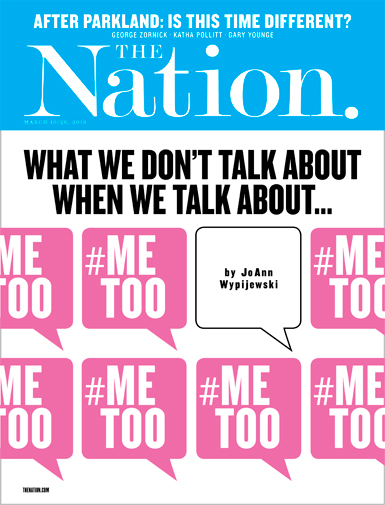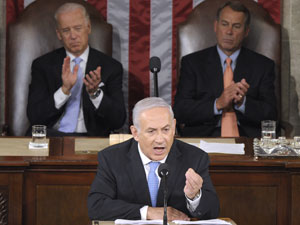
Obama in ‘Iran-Israel Week’ Obama in ‘Iran-Israel Week’
The White House’s placating of Netanyahu won't make talks with Iran any easier.
Mar 19, 2013 / Blog / Bob Dreyfuss
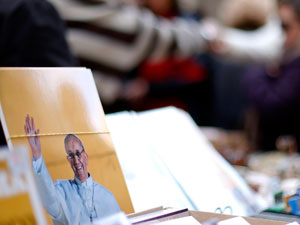
New Pope, Old Papacy New Pope, Old Papacy
There is nothing in Cardinal Jorge Bergoglio’s record to suggest that he will reform the Catholic Church.
Mar 15, 2013 / Norman Birnbaum
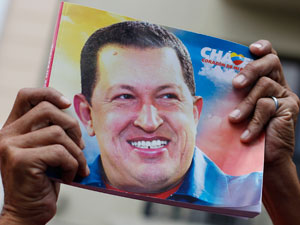
The Audacity of Hugo The Audacity of Hugo
In fourteen years, Chávez radically transformed Venezuela’s economy and society—and the majority of country loved him for it.
Mar 12, 2013 / Feature / Greg Grandin
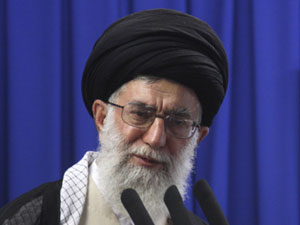
Obama’s Iran Bluff Obama’s Iran Bluff
The United States won’t invade Iran anytime soon—just look at what North Korea has gotten away with.
Mar 12, 2013 / Blog / Bob Dreyfuss
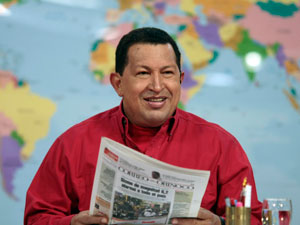
R.I.P. Hugo Chavez (1954–2013) R.I.P. Hugo Chavez (1954–2013)
A man who did a lot of good for a lot of people.
Mar 6, 2013 / Blog / Bob Dreyfuss
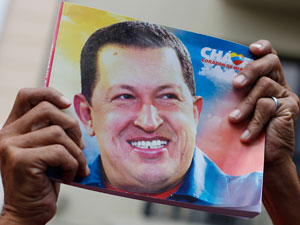
On the Legacy of Hugo Chávez On the Legacy of Hugo Chávez
Yes, the Venezuelan president could be a strongman. But he leaves behind what might be called the most democratic country in the Western Hemisphere.
Mar 6, 2013 / Lived History / Greg Grandin
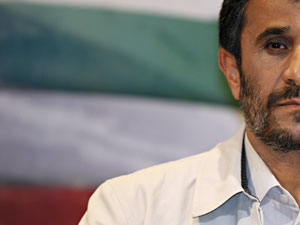
Progress in Iran Talks: Can We Stop the War-Whooping Now? Progress in Iran Talks: Can We Stop the War-Whooping Now?
By softening its rhetoric, the Western side has encouraged the Iranians to come to terms.
Feb 27, 2013 / Blog / Bob Dreyfuss
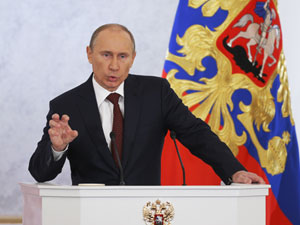
How Obama Can Avert Another Cold War How Obama Can Avert Another Cold War
The president should stem growing tensions with Russia to earn its cooperation in combating terrorism and nuclear proliferation.
Feb 19, 2013 / Stephen F. Cohen
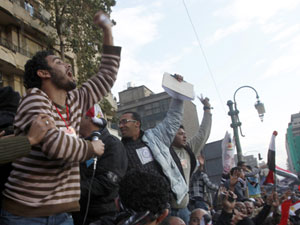
Egypt on the Brink Egypt on the Brink
Clashes across the country have put the legitimacy of the Morsi government in question.
Jan 29, 2013 / Sharif Abdel Kouddous
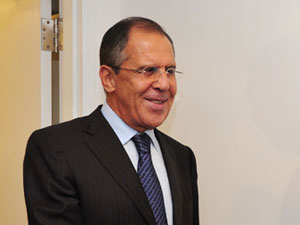
US, Iran ‘Like Little Children,’ Says Russia US, Iran ‘Like Little Children,’ Says Russia
As Iran readies for presidential elections and US defense secretary nominee Chuck Hagel hardens his line on the country, no agreement is forthcoming on where to meet for nuclear pr...
Jan 28, 2013 / Blog / Bob Dreyfuss
